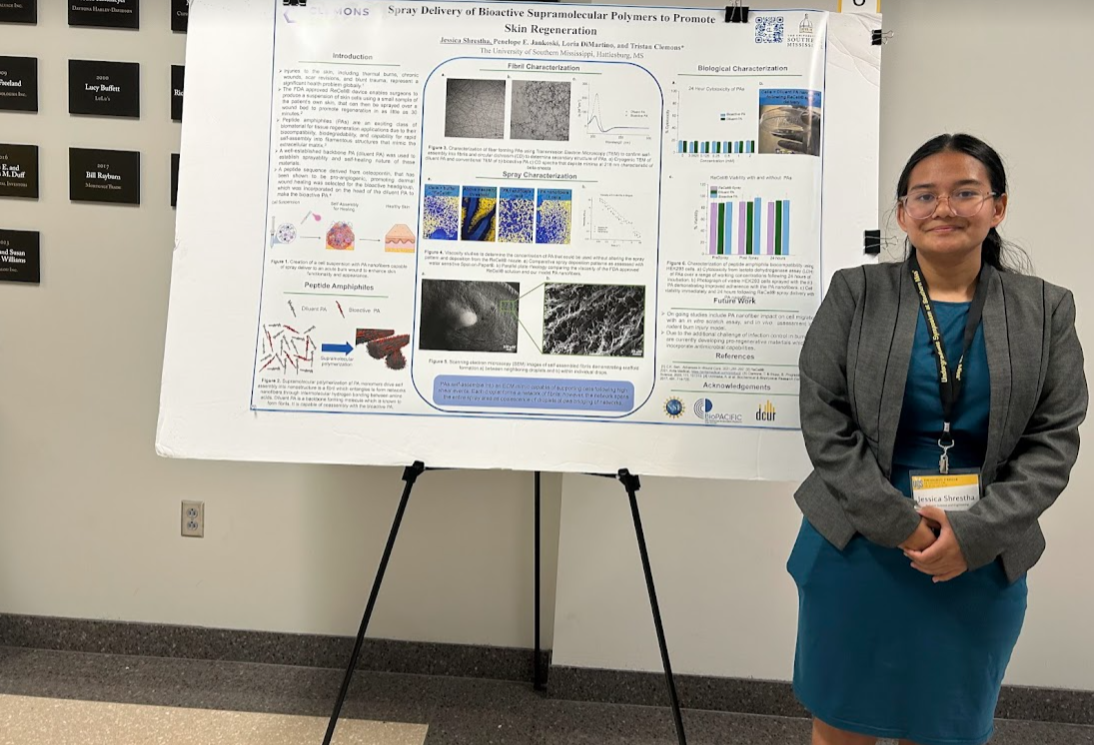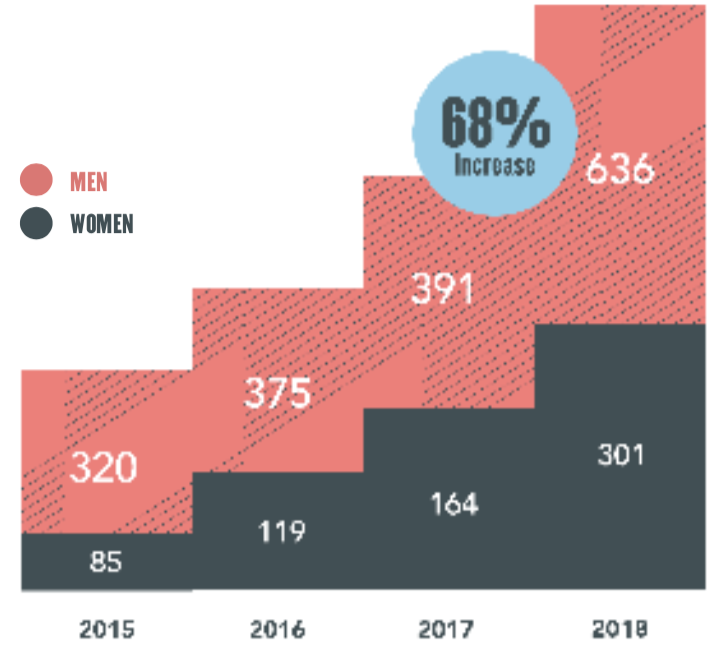The United States has seen its highest syphilis rates in 20 years. Syphilis is a sexually transmitted disease that can have permanent side effects if left untreated, and health professionals are taking action to inform. Between 2013 and 2016, the number of syphilis cases tripled in Mississippi.
Mississippi is the state with the highest rate of STIs and is ranked third in syphilis cases.
Health educator Kayla Johnson said syphilis is treatable but has to be caught in time.
“If it does progress to those upper stages then, while it can be cured, it doesn’t repair any of the damage that may have been done.”
Divided into four stages, syphilis can start off as a painless, round sore in the primary stage. These sores can develop into a rash on the genitalia and hands in the secondary stage. While syphilis is typically nonfatal when treated, the tertiary and neurosyphilis stages’ symptoms include blindness, paralysis, dementia and even death.
The latent stage of syphilis is a period of time where there are no signs and symptoms of syphilis, coming in between the tertiary and secondary stage. Early latent syphilis refers to syphilis where the infection occurred less than 12 months ago, while late latent syphilis refers to infection occurring more than 12 months ago.
Mississippi saw a 68% increase from 2017 to 2018 with early latent syphilis cases, going from 555 reported new cases in 2017 to 937 in 2018. Forrest County had 32 early latent syphilis cases in 2018, up from 11 in 2017. Of the 937 cases of early latent syphilis in Mississippi in 2018, 636 men were diagnosed.
Syphilis is treated either with one shot of penicillin or an antibiotic that can cure a patient who has had syphilis for less than a year. More doses/other treatments are needed for patients with later stages of syphilis.
Planned Parenthood’s Hattiesburg location is one option for people to get tested and treated for STIs. Vice president of patient services Jose Delgado manages several Planned Parenthood locations throughout the Southeast. He believes the reason for the comeback of syphilis in states like Mississippi is because of a lack of sex education among other issues.
“Syphilis is an STI that hasn’t been common for a long time,” Delgado said. “So when I hear syphilis is making a comeback, to me, that’s almost in the same vein of hearing measles are making a comeback.”
It is possible for the patient to not receive treatment and live with syphilis for years without any signs or symptoms. Hinds currently has the highest rate and number of all STIs in Mississippi with 203 of the 937 early latent syphilis cases in 2018 coming from Hinds.
Johnson said students come in to treat STDs frequently, and Moffit offers an RPR screening, which involves drawing blood to detect syphilis.
Working as a health educator and promotions coordinator for the campus clinic at the University of Southern Mississippi, Johnson said her workplace creates specific events tailored towards college students. One of these events, “Man-up Monday,” is meant to encourage men to get tested for STDs.
The founding of an event like Moffitt Health Center’s “Man-up Monday” is in part due to the prevalence of syphilis among men who have sex with men, who made up 64% of new syphilis cases between 2017 and 2018.
“For guys, it’s still tricky just getting them to come to the doctor, especially just for a regular checkup,” Johnson said.
Robin Carmichael from the Forrest County Health Department believes the reason Mississippi has such a high rate of STIs is due to a lot of things, particularly funding.
“It’s a lot of factors, a lot of barriers. Socioeconomics and your environment,” Carmichael said. “Because of those barriers, even with transportation. You know, Mississippi is a poverty state so all that is linking to why.”
Carmichael said that syphilis is not particularly an issue with college students, but it is on the rise for everyone. As a whole, getting tested and practicing safe sex is recommended by nearly all health professionals.
“Get tested, get tested, get tested. We don’t want [STI testing] to be a stigmatized thing,” Johnson said.




































